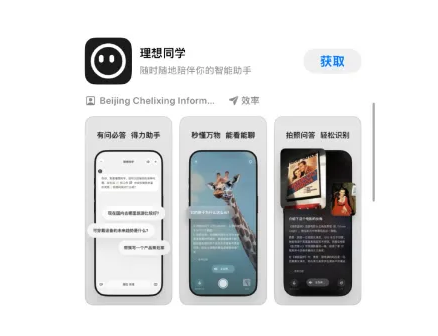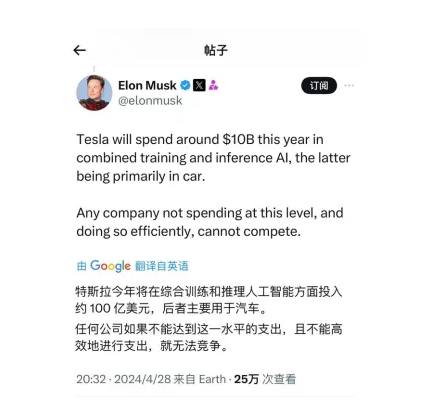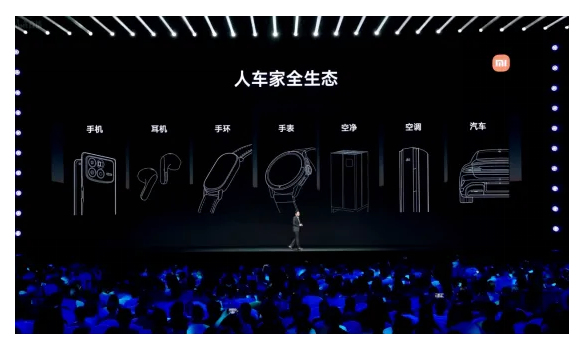Lei Jun and Li Xiang Reunite on the 'New Battlefield' of Automakers
![]() 01/07 2025
01/07 2025
![]() 481
481
In 2024, the cutthroat competition within the new energy vehicle industry is intensifying. Prominent newcomers like Aiways, WM Motor, and HiPhi have already folded, and even those once strongly backed, such as Geely-supported Jiyue, Hozon, and Neta, are on the brink.
According to incomplete statistics, nearly 30 new energy vehicle brands have been eliminated over the past three years, leaving approximately 40 automakers still in the fray, but the attrition continues.
In fact, industry giants like He Xiaopeng and Li Bin share similar perspectives. They believe the new energy vehicle market will eventually be dominated by a select few winners, predicting that only around five companies will remain standing.
Amidst a market where "not running means elimination," automakers are fiercely striving to boost sales, maintain market share, and safeguard profits in 2024, leading to some unexpected shifts. Artificial intelligence (AI) has emerged as a "high-frequency term" within the automotive sector.
1. The Auto Industry's Battle Royale
In the third quarter of 2024, new energy vehicles accounted for over half of China's retail sales for the first time, reaching 52.8%, underscoring the growing dominance of electric vehicles over gasoline-powered ones. Besides newcomers, traditional and joint venture automakers have also pivoted towards the new energy vehicle sector.
However, since last year, due to the overall slowdown in market growth, even traditional automakers with popular models have felt the pinch in the new energy vehicle market and have had to scale back operations, with some resorting to large-scale layoffs.
While newcomers have the advantage of being early movers, no one dares to slow down amidst the automotive price wars. In terms of sales alone, the once-dominant "NIO, XPeng, Li Auto" trio has transformed into "Li Auto, Huawei-AITO, BYD." Newcomers must strive for self-breakthroughs.
On one hand, traditional automakers are forming alliances. Recently, Honda and Nissan officially announced their merger, with Mitsubishi potentially joining, aiming to become the world's third-largest automaker and keep pace with the electrification and intelligentization of the new energy vehicle industry.
On the other hand, many automakers are "self-disrupting." Since last year, BYD's intelligent driving team has made rapid strides, including announcing a 100 billion yuan investment in the intelligentization field and popularizing intelligent driving systems across most models.
XPeng also announced its entry into the extended-range segment at its "XPeng AI Tech Day" last November, despite Chairman He Xiaopeng previously stating that producing ordinary extended-range vehicles was meaningless.
NIO, too, has had similar experiences, potentially launching extended-range models in overseas markets. Notably, to survive in the fiercely competitive new energy vehicle landscape, NIO, which once vowed not to reduce prices or lay off employees, has also initiated price wars and layoff plans.
Furthermore, betting on AI has become a keyword in the new energy vehicle sector in recent years. Last August, XPeng announced its transition from "software-defined cars" to "AI-defined cars," becoming the first domestic automaker to explicitly adopt AI as its strategy.
By the end of 2024, competition among newcomers in AI had further accelerated. Last December, Li Auto launched its AI assistant "Li Assistant" based on its self-developed large model foundation Mind GPT. Li Xiang, Chairman of Li Auto, stated that the company also plans to allow users to use this product on computers and glasses.

At the same time, market rumors circulated that "Luo Fuli," one of the key developers of the DeepSeek open-source large model DeepSeek-V2, might join Xiaomi and potentially lead its large model team.
As early as Lei Jun's annual speech in 2023, he stated that Xiaomi would fully embrace AI large models. In May last year, Xiaomi's large language model MiLM officially passed the large model registration; in November, Xiaomi's Basic Technology Platform Department established an AI Platform Department.
2. The Second Half of Vehicle Manufacturing is AI
If "electrification" was the first half of the automotive industry's transformation, then the "intelligent second half" will be the prevailing trend. Currently, accelerating the popularization and application of advanced intelligence, intelligent driving, and large model technologies has become the main route for automakers' technological innovation.
Tesla leads the pack in this regard. Its founder, Elon Musk, mentioned the concept of "autonomous taxis" as early as 2020 and first introduced the concept of the humanoid robot Optimus at the 2021 AI Day event.
Currently, Tesla's AI layout encompasses chips and infrastructure, autonomous driving technology, humanoid robots, energy storage systems, among others. In April this year, Musk stated that Tesla would invest approximately $10 billion this year in comprehensive training and reasoning AI.

In a 2025 internal letter, XPeng Chairman He Xiaopeng reiterated that XPeng is a global AI automaker. In the next ten years, XPeng is committed to becoming a globally leading AI automaker.
Currently, XPeng's AI layout spans five major areas: AI cars, AI chips, AIOS, AI robots, and flying cars. According to He Xiaopeng, XPeng has invested up to 3.5 billion yuan in AI technology, with a focus on intelligent driving.
Compared to these two companies, Li Auto and Xiaomi, although they have long been involved in AI, with Li Auto introducing the industry's first "end-to-end + VLM" technical architecture last August, they did not previously focus on intelligent driving as their main selling point.
Regarding Li Auto's recent high-profile entry into the AI field, Li Xiang, Chairman of Li Auto, told the media that Li Auto aims to be a leading AI enterprise, with cars serving as the means and intelligence as the goal.
Li Xiang stated that Li Auto's self-developed Mind GPT is not solely for intelligent driving but is positioned as a "large language model." In this process, the large car model will continuously evolve into a "visual-linguistic-action model" and even become a human's "silicon-based family member," which will be the ultimate form of AI products.
However, Li Xiang believes he is not merely following the trend. He described founding "Autohome" as creating "a tree," but the AI market is a "forest," a richer ecosystem. Therefore, Li Xiang stated that Li Auto will invest 10 billion yuan annually, with half dedicated to AI.

In contrast, the outside world has a low awareness of Xiaomi's large model endeavors. According to Wall Street Journal reports, Xiaomi is cautious about the large-scale investment required for pre-training and focuses on "lightweight" and "local deployment" in large models.
However, following news that Xiaomi poached Luo Fuli with a ten-million-yuan annual salary, it is evident that Xiaomi is also accelerating its AI efforts. According to media outlets like Jiemian News, Xiaomi is actively building its GPU 10,000-card cluster, a project that will be personally led by Lei Jun.
Compared to other automakers, Xiaomi's biggest strength lies in its rich "people-car-home" ecosystem, encompassing mobile phones, cars, and IoT devices. In the AI application implementation stage, Xiaomi can further integrate AI with people, cars, and homes, an advantage other brands lack.
At Xiaomi's recent People-Car-Home Full Ecosystem Partner Conference, Lu Weibing, President of Xiaomi, revealed that Xiaomi will invest over 100 billion yuan in R&D from 2022 to 2026, primarily focusing on the development of three underlying technologies: AI, OS, and chips.

However, regardless of whether automakers have greater ambitions in the field of AI, new energy vehicles and AI technology are already inseparable. The "AI content" of intelligent driving systems and intelligent cockpits speaks for itself. Currently, the application of AI in R&D and production is increasing.
For example, Toyota's R&D subsidiary already uses generative AI for image generation to optimize design and improve development efficiency. Honda and Sony's subsidiaries utilize generative AI in the development of new vehicle safety driving and advanced driver assistance systems.
Meng Erli, Senior Technical Director of Xiaomi AI Lab, stated that AI can empower material R&D. Changan Automobile has built the world's first global 5G digital intelligence AI flexible super factory, including online AI quality inspection and automated welding.
3. Automakers are also Tech Companies
In the internet industry, the phrase "all products deserve to be redone with AI" is frequently mentioned by industry leaders. Currently, AI seems to be "redoing" automotive products. But as Li Xiang said, cars are merely the means, and intelligence is the goal.
Currently, automakers like Tesla, XPeng, and Li Auto have demonstrated their ambition to become global tech giants. But why are cars the best carrier for them to enter the AI era?
On one hand, cars can provide data and funding for a company's "tech dream." Judging from the AI investments of these automakers, annual investments of tens of billions of yuan are the norm. Without sufficient funds, companies may not even have a chance to participate.
"Car manufacturing" can help automakers more easily obtain an entry ticket. Firstly, car manufacturing has the potential to achieve profitability, which Li Auto has proven with its strength. Secondly, car manufacturing can quickly reach a larger user base, build the automaker's own intelligent ecosystem, help it obtain more data, and repeatedly train large models in different scenarios.
On the other hand, technological innovation is the true moat for a company. In the era of internal combustion engines, powertrain technology once gave overseas automakers a significant lead and accumulated profound brand equity.
However, in the new energy era, the differences in automobile manufacturing technology are narrowing, while differences in intelligent technology are widening. Cars utilizing AI large models may even possess learning and understanding capabilities akin to the human brain. Once on the "fast track" of intelligence, the iteration speed of large car models may increase exponentially.
Moreover, intelligent data can be replicated to other intelligent hardware, creating a comprehensive AI ecosystem layout. For example, Xiaomi's proposed "people-car-home" ecosystem has gradually become the industry mainstream, and Tesla's robots are no longer confined to science fiction films. AI brings more opportunities for the development of intelligent terminals.
Finally, AI super products will be the next generation of entry points, which is why internet giants have actively developed general large models and super intelligent assistants over the past year.
In the "people-car-home" ecosystem, cars are being used more frequently and are extending beyond transportation scenarios to encompass more areas such as life, travel, and entertainment. Cars are also expected to become new traffic entry points.
This year, more and more automakers have stated their intention to become AI companies. This is because, in the AI era, the integration between humans and intelligent entities will become closer. In this process, the advancement of car intelligence has surpassed other intelligent hardware.








